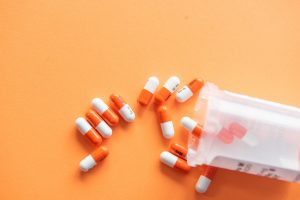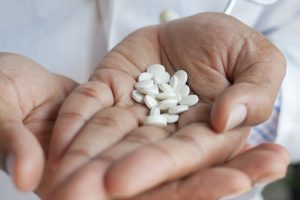While it is true that chlamydia is regarded as a sexually transmitted disease, there is a misconception that you can be infected through kissing. As a result, many people have asked can you get chlamydia from kissing. This is because chlamydia is typically spread through contact with infected body fluids during sexual activities. In this article, we’ll discuss if you can get infected with chlamydia through kissing and what to do if you believe you have the infection.
Chlamydia and Kissing
Chlamydia is easily one of the most commonly reported sexually transmitted diseases in the United States, with over 4 million Americans affected yearly. The disease is more common in people aged below 25 years of age who are sexually active.
However, chlamydia can affect anyone if exposed to the Chlamydia Trachomatis bacteria that causes the infection.
The asymptomatic nature of the disease significantly contributes to its country-wide spread because people can spread the infection to others without even being aware that they have it.
Chlamydia doesn’t often show symptoms when it occurs, and the disease can stay dormant in the body for several years, causing irreversible damage before eventually showing any signs.
This is why regular testing is advised for people who engage in sexual activities, especially young people below 25.
As noted, chlamydia is typically spread through contact with infected body fluids during sexual activities. These sexual activities include oral, toy, vagina, or anal sex. This means you can get chlamydia by having sexual contact without a condom or protection from a partner who is already infected.
Can You Get Chlamydia From Kissing?
While you can get chlamydia through contact with infected body fluids during sexual activities, you cannot get chlamydia from kissing. It is a widespread misconception that chlamydia can be spread through kissing.
However, it is essential to point out that this infection is not transmittable through kissing because someone cannot spread the bacteria through saliva or casual contact.
This means that exchanging saliva, sharing cups, and everyday items with someone with chlamydia will not get you infected.
Typically, the bacterium chlamydia trachomatis causes chlamydia by gaining access to the urinary tract through the vagina or anus and can sometimes remain in the gut for many years without adequate treatment.
We’ve established that you cannot get chlamydia through kissing or casual contact. However, if you have sex without a condom with someone infected, you stand a high risk of getting infected.
Babies can get chlamydia from an infected mother during childbirth. In addition, sexually active people can get infected with the disease as long as there is sexual contact with infected body fluids, even if there is no penetration or ejaculation.
How Can You Tell You Have Chlamydia?
Chlamydia usually doesn’t present symptoms in most cases, so it might be tricky to tell when most people are infected.
However, in instances where symptoms do show up, some of the associated symptoms include:
- Rectal pain
- Anal bleeding
- Pain and swelling around the testicles
- a burning sensation during urination
- Unusual sore in and around the genitals
- abnormal smelly discharge from the penis or vagina
- Abnormal and painful menstruation
- vaginal bleeding between periods
- Pneumonia in babies
- Eye infection
These symptoms may occur weeks after initial exposure or sexual contact with an infected partner.
More importantly, however, most people don’t show signs when they have chlamydia, so regular testing is recommended for safety.
If you suspect you have chlamydia, ensure to consult your doctor immediately. Your healthcare provider will test you after taking your urine or vaginal cotton swab sample.
If your test results return positive for chlamydia, your doctor will recommend the appropriate antibiotics for treatment.

Diseases That Can Spread Through Kissing
Indeed, you cannot get chlamydia through kissing or casual contact. However, some diseases can spread through contact with saliva or kissing.
For example, some sexually transmitted infections can be spread when open cuts in and around the mouth or through saliva exchange.
Some of these diseases include:
- Influenza
- Viral infections and the common cold
- Epstein-Barr virus
- Cold sore or fever blisters that are also known as herpes simplex virus
- Hepatitis B can be transmitted if there are cuts or sores in the mouth where blood can be exchanged.
- Cytomegalovirus
- Meningitis, known as the inflammation of the spinal cord and brain
Frequently Asked Questions (FAQs)
Here are some of the most frequently asked questions on can you get chlamydia from kissing.
Even if you cannot spread chlamydia through kissing, other conditions can be transmitted through saliva exchange. Here are a few tips for practicing safe kissing and protecting yourself from infectious diseases.
Don’t kiss someone if either of you spots an open mouth sore.
You should avoid kissing if you or your partner have cut around or in your mouth.
Don’t kiss when you’re sick
You should also avoid kissing sick people
Don’t bite during kissing activities.
You can also kiss other body parts like hands and cheeks to be on the safe side.
Yes, you can get some STDs from kissing, even though kissing is considered low-risk compared to penetrative or oral sex. STDs like CMV (Cytomegalovirus), syphilis, and genital herpes can be gotten through kissing when there’s saliva exchange or skin-to-skin contact. For instance, CMV is typically present in the saliva of an infected person, while herpes and syphilis require a skin-to-skin connection for transmission.
As mentioned earlier, you cannot get chlamydia from kissing.
Chlamydia is usually transmitted through sexual contact with infected body fluids. The most common ways people get chlamydia is through anal, vaginal, and oral sex. However, you can still get chlamydia by making contact with your eye if you have infected body fluids on your hand. Babies can also get chlamydia through their mothers during childbirth.
Yes, chlamydia is curable and is mainly treated with antibiotic therapy. Suppose you have chlamydia. Your doctor will prescribe antibiotics for your chlamydia treatment. Your doctor may recommend a one-dose medication or an option you’ll take daily for about seven days. In addition, chlamydia is expected to go away within 1-2 weeks of treatment.
You should stay away from sex while you are treating chlamydia to avoid recurrent infections. In addition, it would be best if you were tested three months after your treatment to ensure no recurrent chlamydia infection in your body.
The most reliable way to protect yourself from chlamydia spread is to avoid oral, vaginal, and anal sex without a condom or any approved form of protection.
For men, male latex condoms can protect against chlamydia, while for women, polyurethane condoms can. Ensure you use condoms correctly every time you have sex for your safety.
You should also consider reducing the number of sexual partners you have. This will reduce your risk of exposure and help you guide against infection.
Women should avoid douching as it reduces the number of healthy bacteria in the vagina, increasing the risk of infection.
Doxycycline and Azithromycin are the two most commonly recommended antibiotics for chlamydia. Doxycycline is typically recommended to be taken daily for seven days. Similarly, one Azithromycin dose of 1g, followed by 500mg daily for two days, is also commonly recommended.





